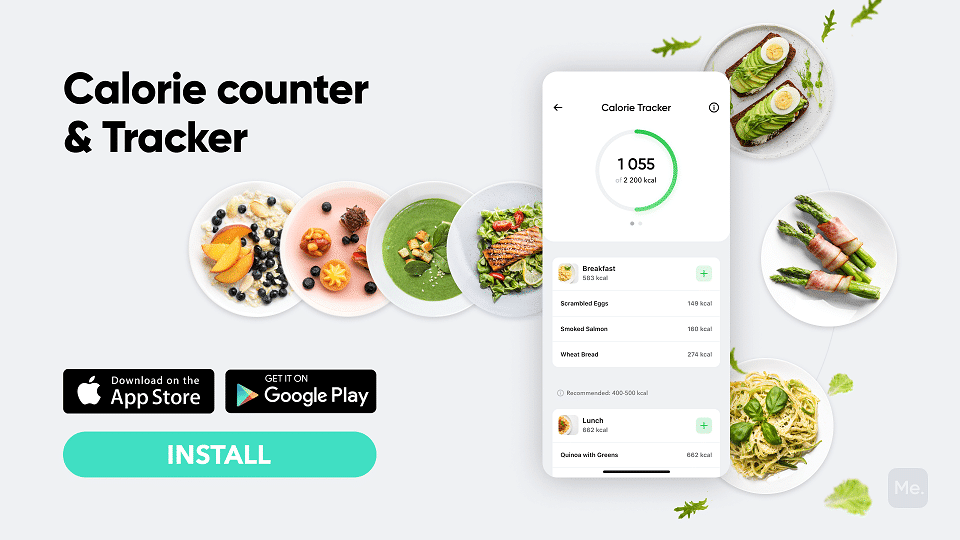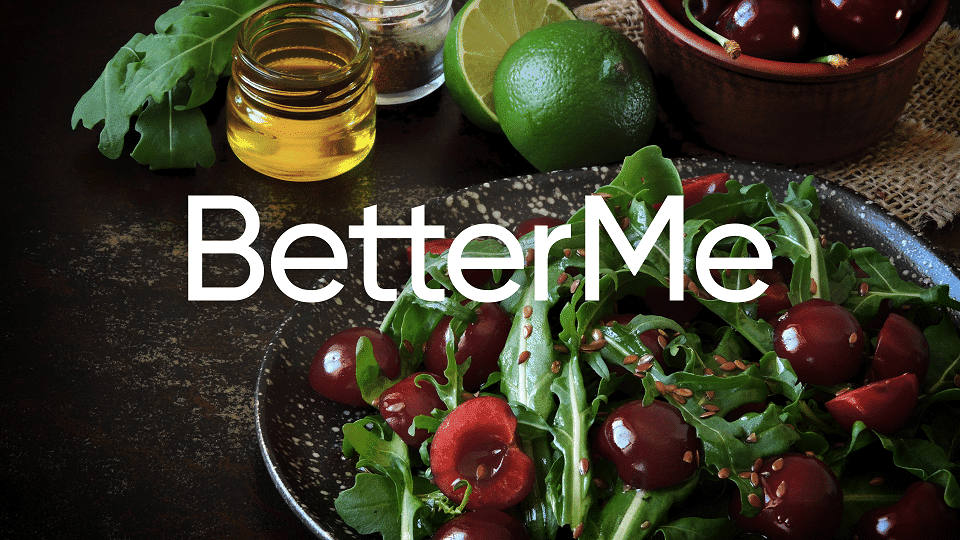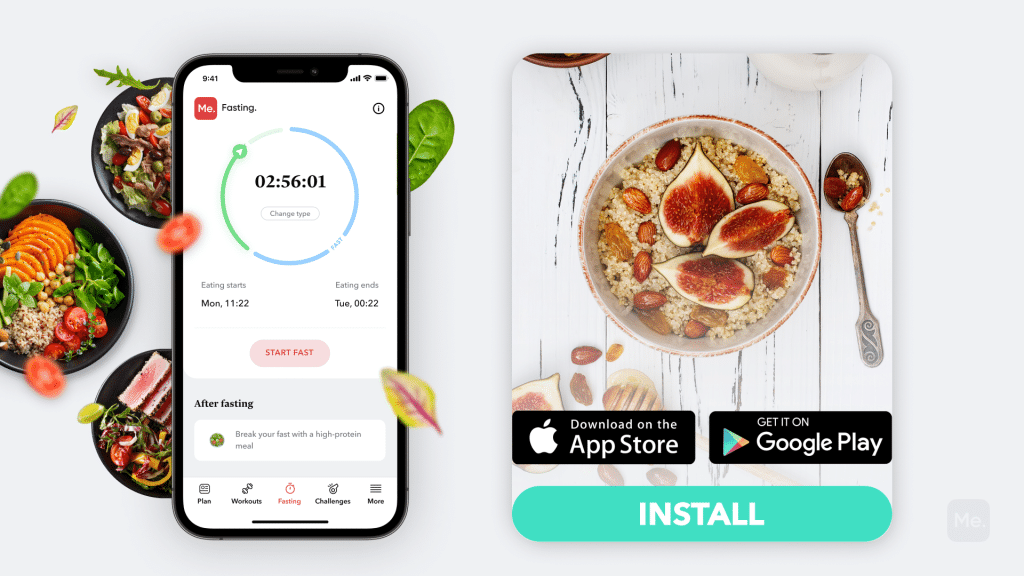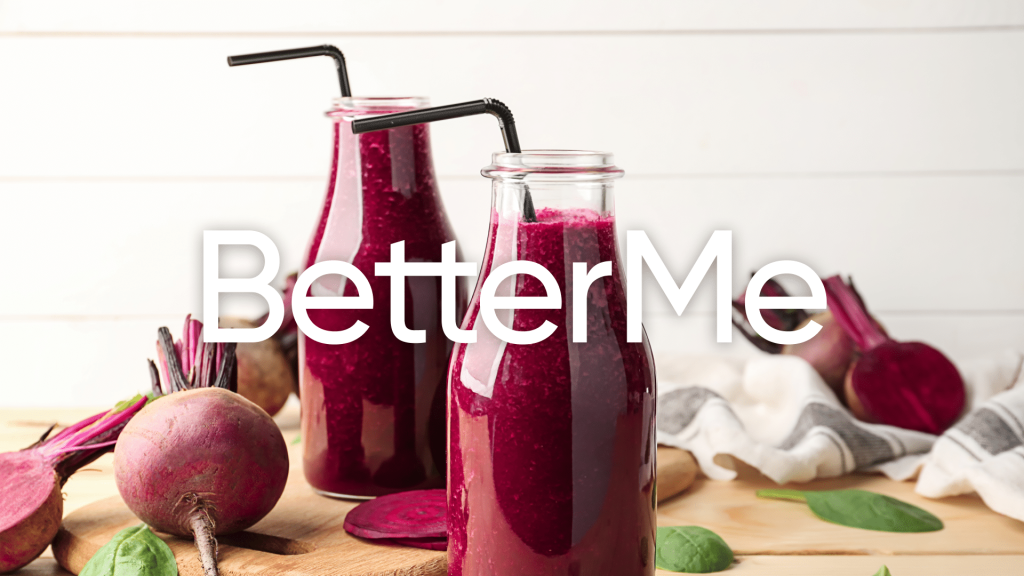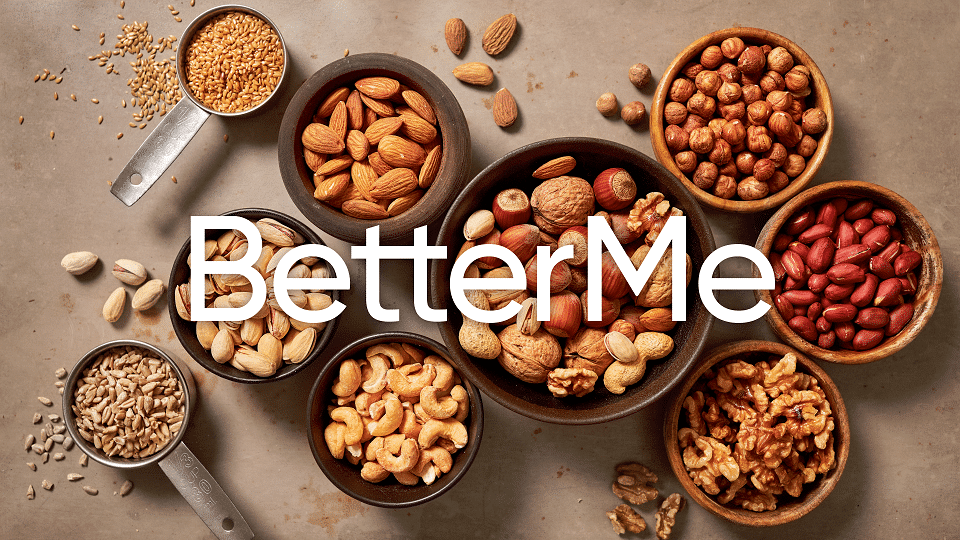Discarding spoiled leftovers as well as excess food might not seem like a big deal, but the effect is dire. Such actions are classified under food wastage, which happens to be one of the leading strains on finances, social interaction, and the environment. A quick evaluation of most households shows that most foods are wasted because many people do not keep track of their food inventory. In light of this, some people have started adopting what is known as a zero waste food lifestyle to curb food waste. The war against food wastage starts with such actions. Let’s see, what does this lifestyle entail? Today we’ll discuss the principles of a zero-waste food lifestyle, including what you could do to minimize the amount of food wasted.
Get your personalized
meal plan!
What Does Zero Waste Food Mean?
Food wastage is a concern. The U.S. Food & Drug Administration reveals that it has become a challenge to our pocketbooks, natural resources, and environment. It is estimated that 30 to 40% of food in America is not eaten, meaning that Americans are throwing away food equivalent to $165 billion each year (4).
Similarly, the U.S. Food & Drug Administration reveals that organic waste accumulated mainly from food waste is the second most significant component of landfills. Landfills are the third-largest source of methane emissions that contribute to global warming (4).
Looking at this, many countries have launched zero waste campaigns to help reduce food waste. As the name suggests, zero waste food means throwing away no food. So, when practicing a zero waste food lifestyle, you must finish every item in the meal you prepare. This does not have to happen on the same day since you can store the leftovers and consume them another day. The critical point is that you are not discarding any food.
Benefits Of A Zero Waste Food Lifestyle
When you think of such a lifestyle, perhaps the only benefit you could imagine is reduced food waste. However, there are several benefits that experts have linked to adopting such a lifestyle. Some of these benefits include:
Saving Money
You get to save money when following a zero waste food lifestyle because you only buy what you need for one (4). Secondly, you avoid buying any excess food which you might throw away if it expires when not consumed on time.
Practicing Healthier Eating Patterns
You become more aware of what you eat when you know your eating patterns. That said, you will find that as you try to limit food waste, you also concentrate on healthy eating patterns that promote a healthier lifestyle. For example, this could mean an increase in the consumption of fruits, vegetables, healthy fats, and other healthy food groups (5).
Reduced Environmental Pollution
Food waste contributes to environmental pollution, as in greenhouse gas emissions. It also can contribute to polluted land and water, as well as health concerns like cholera. Putting an end to food waste in your household is one step towards reducing the spread of such diseases and environmental pollution.
Promotes Organization
Of course, working with a small list of items makes organization and planning easier. Continue a running list of items your household needs and stock only those. Besides enhancing your organization skills, this lifestyle also equips you with planning skills.
Read More: Candida Cleanse Diet Food List: Will This Diet Help Fight Yeast Infection?
How To Start Practicing A Zero Waste Food Lifestyle
Although it sounds simple, establishing a lifestyle where you do not throw away any food is challenging for many. Some cannot resist the urge to buy things in bulk, which can easily go bad quickly, leading to waste.
Still others cannot bring themselves to eat leftovers, as they would prefer to dine out. This practice leads to often throwing food away. These are just common examples of behaviors that lead to food waste in most households. Below are some strategies that experts and science show can help reduce food waste and encourage a zero waste food lifestyle:
Avoid Buying Excess
One of the most straightforward ways to maintain a zero waste food policy is to buy less. Yes, we understand that you may be trying to cut down on the number of trips to the grocery store.
But unfortunately, too much food leads to wastage, especially when the household cannot eat all of the food. So it is better that you take trips to the grocery store only after all the food in your house is done (5). This cuts back on food waste.
Use A Shopping List
One of the main reasons you are advised to prepare a shopping list is so you can avoid over shopping. Without a list, you often purchase foods which you already have in your home.
So, learn to take an inventory of the food you need before heading to the grocery store. This prevents unnecessary purchases and reduces potential food waste (5). As you take the inventory, be very specific on the required quantities.
You may realize that you have a shopping list but cannot tell what the needed amounts are. As a result, you purchase some products in excess only to find out you just needed to stock a few quantities.
Be very specific when creating the shopping list. For example, indicate the brand your household uses to avoid buying another brand that your family never uses. Eventually, it is thrown away, contributing to food waste. Similarly, indicate the required quantities to avoid buying some in excess or too little.
Avoid Impulse And Bulk Purchases
Unfortunately, this is easier said than done for most. You may find promotions too good to pass, even if you already have plenty of that product at home.
Remember that some products with promotions have a limited shelf life (4). Buying too many such products leads to waste if they are not consumed before the expiry date.
Again, you may find that the promotions do not suit your family’s food preferences or needs, meaning they will end up in the trash. With this in mind, avoid giving in to impulse and bulk purchases, no matter how sweet the promotion may be.
Design A Weekly Menu
Working with a menu is essential because it provides insight into the week’s foods to stock. In this way you eliminate the chance of purchasing unnecessary foods that may lead to food waste (5).
Contrary to what most people think, designing a meal plan is not a walk in the park. It is challenging because you have to account for daily calories, nutritional requirements, fitness goals, and food preferences.
Considering this, choose to design meal plans with a nutritionist. Some do not mind doing the work themselves, with the help of a few online tools or cookbooks. Choose whichever approach best suits you.
It is worth noting that it may take your household a few days or weeks to adjust to a meal plan. Regardless of how long it takes, it will reduce meal guesswork and food waste (5).
Serve Smart
Yes, you heard it right. But unfortunately, serving can also contribute to food waste, so the U.S. Food & Drug Administration recommends practicing portion control when serving meals (1).
Portion control observes a zero food waste lifestyle because individuals serve an amount of food they are confident to finish. You can practice portion control by using smaller plates or dishes and serving smaller food portions (1).
When it comes to weight loss, progress is made by inches, not miles, so it’s much harder to track and a lot easier to give up. BetterMe app is your personal trainer, nutritionist and support system all in one. Start using our app to stay on track and hold yourself accountable!
Read And Understand The Food Product Dates
The U.S. Food & Drug Administration database shows that most people misunderstand the purpose and meaning of date labels, contributing to food waste. It is estimated that this misunderstanding and confusion accounts for 20% of consumer food waste (4).
You are advised to look for date labels such as Best By, Best Before, Sell By, Expires On, etc. Manufacturing companies use these common phrases for product dating to show when you should consume the product. Be sure to consume or use the product, for example, if it is a spice, before the indicated date (4).
Be Aware Of How Much Food You Throw Away
Another technique that can reduce food waste is knowing the amount of food you throw away. It is an eye-opener for most people because it mainly reflects wasted money on discarded goods.
Additionally, it is an excellent motivation for people to change. Most people are more likely to change when they are aware of their behavior and its dire impact.
Store Food Appropriately
Another common problem that often leads to food waste is poor storage. There are different ways to store various things, depending on factors such as perishability. Below are some tips from experts on proper food storage (5), (3), (2):
Tips On Storing Fresh Produce, Fruits, And Meats:
- Refrigerate or freeze food promptly.
- Store food at the right temperature and as quickly as possible after it is purchased and thoroughly washed, if necessary.
- Do not cut the mold off of any food in an attempt to eat the other parts that look “safe”. Experts state that mold can extend further into the food than the naked eye can see.
- Keep your fridge set between 40˚F and 32˚F and your freezer at 0˚F or below.
- Refrigerate vegetables, fruits, milk, eggs, and meats within 2 hours. Make sure you refrigerate everything within an hour if the temperature outside is above 90ºF.
- The refrigerator door is the warmest part of the fridge. Store condiments in this area. Avoid storing milk or eggs here.
- Store meat, poultry, and fish on the lower shelves of the fridge because they are the coldest parts.
- Store raw meat on the bottom shelf and away from fresh produce and ready-to-eat food to avoid cross-contamination.
- Refrigerate peeled or cut vegetables to preserve their freshness and prevent them from going bad.
Tips On Storing Cooked Food And Leftovers (5), (3), (2):
- Store cooked foods on the shelves above those with raw foods.
- Store food in containers, such as eco-friendly storage containers that do not pollute the environment even when discarded.
- Clearly label leftovers and indicate the date they were prepared and stored.
- Store food in sealed containers.
- Refrigerate leftovers within 2 hours of serving.
Read More: Wild Foods Diet: Foods To Eat And Avoid And Its Impact On Weight Loss
Use The FIFO Kitchen Organization Method
One of the organizational techniques that experts have proven to reduce food waste is FIFO. It stands for “first in, first out.” It is a practical and helpful way to organize food at home because you keep track of the expiry dates (5).
The method is also widely used in most restaurants and grocery stores due to its effectiveness in reducing waste. Again, you are better positioned to reduce waste because identifying these foods makes you prioritize them for cooking.
As per the FIFO rule, place newly purchased foods at the back of the pantry’s cupboard or fridge. Bring those products you bought earlier to the front (5). This will encourage you to use the foods in the front row first, limiting waste.
Eat The Leftovers
Another source of food waste is leftovers. Unfortunately, no matter how delicious a meal is, most people do not look forward to eating the leftovers. As a result, you find many people postponing the day they consume the leftovers until eventually, they go bad.
As part of a zero waste food meal plan, you must create days when you specifically make no new dishes but consume only the leftovers. This could happen on one or two days, depending on the leftovers in your fridge or freezer. Besides reducing waste, eating leftovers also keeps the fridge tidy (5).
Pack Lunch Or Breakfast
One of the simplest ways to avoid food waste and excess leftovers is by packing some for lunch or breakfast when you are on the go. Packing lunch to work does not mean you cannot afford to eat at the cafeteria.
Instead, it shows you are a planner who has invested in zero waste food. Thinking of this, invest in quality food containers that are light, do not leak, and are convenient to carry around (5).
Additionally, invest in containers that keep your food warm till lunch break if you do not have a microwave in your office. This will prevent food wastage and even eliminate extra lunch costs.
Prepare Stock Or Broth
You can elevate your leftovers and enhance their flavor by using them to prepare broth or stock. However, not all foods make the right ingredients list for stock or broth. Some perfect food options for various stocks or broths are meat scraps, and some bones (5).
For instance, you can boil leftover or excess vegetables, peelings, and other scrapings to make a hearty vegetable broth (5). Likewise, you could boil a chicken carcass and rhe remainders like bones and skin to make a delicious chicken broth (5).
Again, it all depends on your leftovers on excess ingredients. Remember to store the broth or stock if you make too much of it. Medical News Today recommends storing homemade broth in the fridge and using it within a few days after making it (5).
Consider How Often You Will Dine Out
Another way to reduce food waste and ease into a zero waste food lifestyle is to account for the number of times you will eat out. The idea is to cut back on the shopping list to avoid buying excess food that may spoil if not consumed on time. That said, if you plan on dining out two days a week, be sure to buy food for less than two days.
Give Away The Excess Food
If you have more food on hand than you can use or need, you may consider donating it to needy families. You may find that some families in your neighborhood go to sleep hungry.
Knowing this, donate your extra supply of packaged foods to street families, homeless people, or a local food pantry (6). You may also want to check with your local food bank or food rescue operation to identify some items they may require (6).
If you had an event and cooked too much food, consider also giving it away or packing the extras in containers for guests. You could also take some over to a neighbor or family friend as a friendly gesture (6).
If you wish to free yourself from all the extra pounds that have been weighting you down for way too long, start using the BetterMe app and overhaul your entire life!
Enroll In Zero Waste Food Campaigns And Challenges
Another technique to help you maintain this lifestyle involves joining campaigns and challenges advocating for zero food waste. It is an educational and fun way of holding you accountable for your food choices.
You can set up a friendly competition with your friends or family members to see who goes the longest without any food waste. Please do not wait until these challenges are created so you can join them. Instead, you can create yours and make the most out of it.
The Bottom Line
A zero waste food lifestyle means consuming all food to avoid food wastage.
Experts suggest implementing some of these tips to maintain this lifestyle: proper food storage, eating leftovers, and using the FIFO storage technique. You should also use a detailed shopping list, work with a meal plan, practice portion control, and give away excess food.
These simple techniques promote zero food waste, and they save you money and improve the environment. Feel free to talk to a professional if you need extra help implementing this lifestyle.
DISCLAIMER:
This article is intended for general informational purposes only and does not serve to address individual circumstances. It is not a substitute for professional advice or help and should not be relied on for making any kind of decision-making. Any action taken as a direct or indirect result of the information in this article is entirely at your own risk and is your sole responsibility.
BetterMe, its content staff, and its medical advisors accept no responsibility for inaccuracies, errors, misstatements, inconsistencies, or omissions and specifically disclaim any liability, loss or risk, personal, professional or otherwise, which may be incurred as a consequence, directly or indirectly, of the use and/or application of any content.
You should always seek the advice of your physician or other qualified health provider with any questions you may have regarding a medical condition or your specific situation. Never disregard professional medical advice or delay seeking it because of BetterMe content. If you suspect or think you may have a medical emergency, call your doctor.
SOURCES:
- Consumers (2022, usda.gov)
- Food safety (2022, medlineplus.gov)
- Food Safety in the Kitchen (2021, cdc.gov)
- How to Cut Food Waste and Maintain Food Safety (2022, fda.gov)
- How to reduce food waste (2019, medicalnewstoday.com)
- Tips to Reduce Food Waste (2022, fda.gov)

